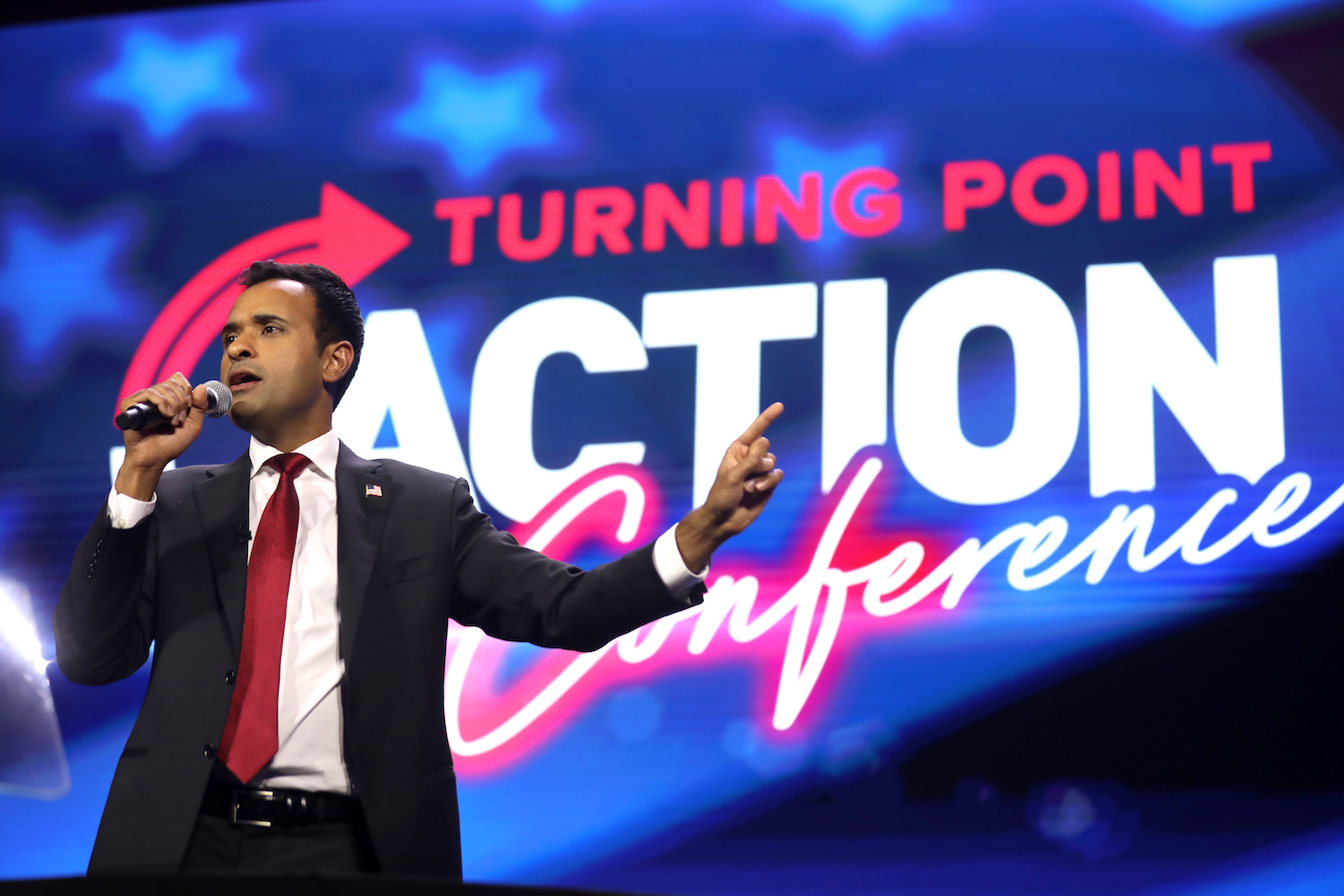by Brian Hioe
語言:
English
Photo Credit: Gage Skidmore/Flickr/CC BY-SA 2.0
TECH ENTREPRENEUR Vivek Ramaswamy, one of a host of Republican contenders for the presidential nomination, recently raised eyebrows with comments to the media suggesting that the US abandon its policy of strategic ambiguity regarding what stance it would take in the event of an invasion of Taiwan. Ramaswamy instead suggested that the US should commit to an unambiguous stance on Taiwan, that of strategic clarity—at least until the US could ensure that it is not dependent on Taiwan for semiconductors.
It is thought that the US and other Western powers are incentivized to defend Taiwan because of their reliance on it for semiconductors. Taiwan produces 90% of advanced semiconductors and 65% of global supply.
Likewise, there have increasingly been calls from Republicans hawkish on China that the US should abandon its longstanding policy of strategic ambiguity on Taiwan. Such Republicans often make such arguments out of a desire to increase support for Taiwan as a way to hit back at China.
Ramaswamy’s comments could be seen in line with such calls to abandon strategic ambiguity. That being said, Ramaswamy quickly caused further confusion by stating that the US should maintain a stance of strategic clarity until 2028—by which, Ramaswamy stated, the US would no longer be dependent on Taiwan for semiconductors. Then the US should resume policies of strategic ambiguity.
It is unclear where Ramaswamy produced the 2028 date from. The US is currently engaged in efforts to bolster its domestic semiconductor industry, inclusive of the construction of a TSMC fab in Arizona. Nevertheless, the US’s semiconductor forays are early forays, and it is not expected that the US will be able to catch up to or surpass Taiwan in terms of semiconductor production in a mere five years.
To this extent, US military experts such as former head of US Indo-Pacific Command Admiral Philip Davidson have suggested that China will have the capacity to invade Taiwan by 2027. If Ramaswamy wins the presidency, his comments may be interpreted as suggesting that China should simply wait another year in order to invade Taiwan. This aspect of Ramaswamy’s comments has been widely mocked.

Vivek Ramaswamy. Photo credit: Gage Skidmore/Flickr/CC BY-SA 2.0
Ramaswamy seems to be echoing Donald Trump in his view of Taiwan that entails supporting it only because this benefits American interest, as framed in terms of pure realpolitik. Nevertheless, criticisms of Ramaswamy’s position to date have pointed to how neither China nor the US only value Taiwan because of its current dominance in semiconductors.
For one, China’s claims over Taiwan predate Taiwan’s current dominance of the semiconductor industry, as does US support of Taiwan. Moreover, Japan and other Asia Pacific countries would forever be on edge if Taiwan were taken by China, because of its geostrategic position as part of the First Island Chain. Japan would be forever cautious of Chinese military incursions, particularly by submarine, if Taiwan were taken by China.
And if Taiwan were taken by China, this would deal a significant blow to US prestige in the region. Current allies of the US in the Asia Pacific would likely reevaluate the reliability and desirability of alignment with the US if Taiwan were abandoned to China. This would likely shift the balance of power in the region away from the US and toward China.
For his part, Ramaswamy has asserted that he is the only presidential candidate with a clear vision for Taiwan. Certainly, Ramaswamy has asserted a very clear timeline for action on Taiwan, even if this seems to not be rooted in anything factual, and Ramaswamy was producing a timeline for drastic shifts in policy on Taiwan apropos of nothing.
Still, in this regard, Ramaswamy may have proven himself to be a candidate in the mold of Donald Trump, in that he is also a political outsider who seems to be coming up with policy on the fly. Yet it is to be seen if he gains traction in the course of the presidential election cycle.
Certainly, with mockery of his policies to date, there have been those who have called for an increase in support for Taiwan simply to hit back at Ramaswamy’s outlandish views. But it is to be seen if such views gain traction, however unrealistic they may be.



